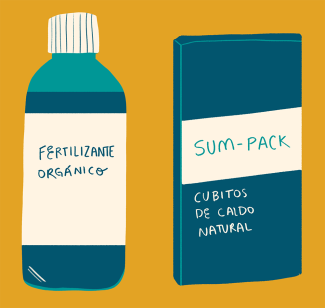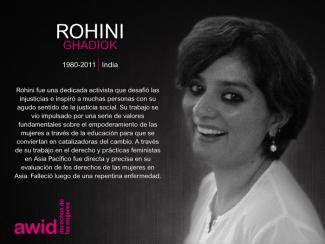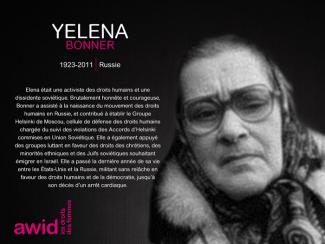
Noxolo Nogwaza

El Consejo de Derechos Humanos (CDH) es el cuerpo intergubernamental del sistema de las Naciones Unidas responsable de la promoción y protección de todos los derechos humanos en todo el mundo. El HRC se reúne en sesión ordinaria tres veces al año, en marzo, junio y septiembre. La La Oficina del Alto Comisionado para los Derechos Humanos (ACNUDH) es la secretaría del Consejo de Derechos Humanos.
Debate y aprueba resoluciones sobre cuestiones mundiales de derechos humanos y el estado de los derechos humanos en determinados países
Examina las denuncias de víctimas de violaciones a los derechos humanos o las de organizaciones activistas, quienes interponen estas denuncias representando a lxs víctimas.
Nombra a expertos independientes que ejecutarán los «Procedimientos Especiales» revisando y presentado informes sobre las violaciones a los derechos humanos desde una perspectiva temática o en relación a un país específico
Participa en discusiones con expertos y gobiernos respecto a cuestiones de derechos humanos.
A través del Examen Periódico Universal, cada cuatro años y medio, se evalúan los expedientes de derechos humanos de todos los Estados Miembro de las Naciones Unidas
Se está llevarando a cabo en Ginebra, Suiza del 30 de junio al 17 de julio de 2020.
AWID trabaja con socios feministas, progresistas y de derechos humanos para compartir conocimientos clave, convocar diálogos y eventos de la sociedad civil, e influir en las negociaciones y los resultados de la sesión.

Groups, organizations and/or movements working specifically or primarily for women, girls, gender justice, LBTQI+ and allied people’s rights in all regions and at all levels, both newly formed and long-standing.
En nuestro Tributo Virtual 2015 honramos a cinco defensoras de derechos humanos asesinadas en la región de Medio Oriente y África del Norte. Estas defensoras trabajaron por los derechos de las mujeres y los derechos civiles, en su rol de abogadas y activistas. Sus muertes ponen en evidencia las condiciones de trabajo peligrosas y difíciles que, a menudo, imperan en sus países. Únete a AWID para honrar a estas mujeres, su activismo y su legado, compartiendo los memes aquí incluidos con tus colegas, amistades y redes; y tuiteando las etiquetas #WHRDTribute y #16Días.
Por favor, haz click en cada imagen de abajo para ver una versión más grande y para descargar como un archivo.





您若持有下列國家的護照,可免簽入境台灣到台北參與論壇活動(請留意持免簽可停留的天數各國不同):
安道爾、澳大利亞、奧地利、比利時、保加利亞、汶萊、加拿大、智利、克羅埃西亞、賽普勒斯、捷克、丹麥、愛沙尼亞、 史瓦濟蘭、芬蘭、法國、德國、希臘、瓜地馬拉、海地、宏都拉斯、匈牙利、冰島、愛爾蘭、以色列、義大利、日本*、韓國、拉脫維亞、列支頓斯登、立陶宛、盧森堡、馬爾他、馬歇爾群島、摩納哥、荷蘭、紐西蘭、尼加拉瓜、挪威、帛琉、巴拉圭、菲律賓、波蘭、葡萄牙、羅馬尼亞、俄國、聖馬利諾、斯洛伐克、斯洛維尼亞、西班牙、瑞典、瑞士、吐瓦魯、英國、美國、梵蒂岡城國、貝里斯、多明尼加、馬來西亞、諾魯、聖克里斯多福及尼維斯、聖塔露西亞、聖文森和格瑞納丁、新加坡。
未持有上述國家護照的人士來台北須申請簽證。
請留意:
在您完成論壇註冊手續後,無論您國籍為何,應會收到與論壇參與相關的一組號碼,用於申請來台灣的電子簽證。
論譠開放報名的時間我們會另行通知。

¡Sí! Reconocemos y valoramos las distintas razones por las que los feminismos en sus contextos respectivos no cuentan con financiamiento externo, ya sea por no reunir los requisitos para solicitar donaciones o para recibir dinero del exterior, o bien porque se financian con recursos generados de manera autónoma como estrategia política en sí misma. Deseamos saber de ustedes con independencia de su experiencia de financiamiento externo.
En Europe de l’Ouest et du Sud-Est ces défenseuses des droits humains ont voué leur vie à mener des campagnes ou des recherches. Elles ont été membres de différents mouvements pour la paix ou pour les droits des femmes et ont contribué à les faire évoluer par le biais de l'action politique, de l’activisme social ou à travers la danse. Nous les remercions infiniment pour l'héritage qu'elles nous ont laissé. Nous vous invitons à vous joindre à l’AWID pour rendre hommage à ces femmes, à leur activisme et à l’héritage qu’elles nous ont laissé. Faites ces mèmes auprès de vos collègues et amis ainsi que dans vos réseaux et en twittez en utilisant les hashtags #WHRDTribute et #16Jours.
S'il vous plaît cliquez sur chaque image ci-dessous pour voir une version plus grande et pour télécharger comme un fichier






À l’heure actuelle, l’enquête est disponible sur KOBO en français, anglais, arabe, espagnol, portugais et russe. Vous pouvez choisir votre langue au début du questionnaire.
Le cadre de référence de votre recherche vous guidera tout au long du processus de recherche. Le document de référence que vous élaborez peut aussi servir de note de synthèse destinée aux personnes qui vous conseillent et à vos partenaires, ainsi qu’à une demande de financement aux éventuels donateurs.
Dans cette section
Avant de mener toute recherche :
- Fixez les objectifs de votre recherche.
- Dressez la liste des questions principales auxquelles vous souhaitez que votre recherche réponde.
- Écrivez les types de données que vous devrez recueillir et examinez-les pour répondre à vos questions principales.
- Définissez les produits finaux que vous élaborerez à l’aide de votre recherche.
Le cadre de votre recherche pourra évoluer avec le temps, alors que vous peaufinez vos questions et recueillez de nouvelles informations. Cependant, le fait de créer un cadre de recherche dès le départ vous permettra de travailler à partir d’une base solide.
Afin que votre recherche WITM ait une base solide, il est important de définir clairement ce que vous souhaitez accomplir.
Par exemple, l’un des objectifs de la recherche mondiale WITM de l’AWID consistait à fournir des données rigoureuses afin de prouver ce que nous savions déjà par ouï-dire : que les organisations de droits des femmes sont sous-financées, et de surcroît de façon marquée. Ces données nous permettraient selon nous d’être en meilleure position pour influencer les prises de décisions des bailleurs de fonds.
Vos objectifs pourraient être les suivants :
Structurez votre processus de recherche à l’aide de questions clés auxquelles seule votre recherche puisse répondre et limitez ces questions à un laps de temps spécifique (p. ex. la dernière année, les derniers cinq ans, etc.).
Tenez compte des aspects suivants :
Le fait de choisir une période spécifique pour votre recherche peut mener à des résultats plus précis qu’ils ne le seraient si vous travailliez avec un calendrier ouvert. De plus, la décision de répéter ou non votre recherche à intervalles réguliers vous permettra de fixer des repères de collecte de données, facilitant la reproduction et la comparaison au fil du temps.
Principales questions qui ont guidé le processus de recherche WITM de l’AWID :
- Quelle est la situation actuelle quant à la durabilité financière des organisations de droits des femmes à travers le monde ?
- Quelles sont les tendances externes et internes qui influent sur les décisions de financement des donateurs à l’appui des organisations et des mouvements de femmes ?
Maintenant que vous avez défini vos questions principales, vous pouvez déterminer les types de données qui vous aideront à répondre à ces questions. Ainsi, vous serez en mesure de planifier le reste du calendrier de votre recherche WITM.
Par exemple, est-ce que vous mènerez une enquête qui couvre une vaste proportion de votre population prioritaire ? Est-ce que vous analyserez les demandes de financement que les bailleurs de fonds reçoivent dans une région particulière ? Est-ce que vous procéderez à des interviews (recommandé) ? En déterminant quelles sont les données dont vous avez besoin, vous pourrez entrer en contact avec des parties externes qui vous fourniront ces données dès le départ, et serez à même de planifier en conséquence l’ensemble de votre calendrier. Nous vous suggérons les sources de données suivantes :
La diversité des ensembles de données constitue un excellent moyen de créer une analyse robuste et riche.
Par exemple, les données de l’Enquête mondiale de l’AWID en 2011 sont les piliers de nos récentes analyses. Cependant, nous avons également recueilli des données d’interviews sur le terrain, avec des donateurs, des activistes ou des organisations de droits des femmes.
L’élaboration d’un plan initial sur les produits que vous créerez vous permettra non seulement de fixer votre calendrier, mais vous donnera également une idée des ressources dont vous aurez besoin.
Par exemple, produirez-vous uniquement un rapport de recherche ou créerez-vous également des infographies, des dépliants et des présentations ? Selon les produits que vous choisirez, vous aurez peut-être à recourir à des sociétés de conception graphique, à prévoir des manifestations, etc.
Ces produits seront également les outils que vous utiliserez pour atteindre vos objectifs. Ainsi, il est important de garder ces objectifs à l’esprit. Par exemple, votre recherche WITM a-t-elle pour unique objectif de servir d’outil de plaidoyer visant à influencer les bailleurs de fonds ? Si tel est le cas, vos produits devraient vous permettre de mobiliser les bailleurs de fonds de manière significative.
Exemples de produits :
Le fait d’établir un cadre de recherche portant sur les objectifs, les questions principales, les types de données et les produits finaux vous permettra de créer un calendrier bien planifié, de préparer vos ressources à l’avance et de fixer un budget réaliste.
Cette démarche facilitera les interactions avec les partenaires externes, tout en vous permettant de gérer plus aisément les contretemps inattendus.

• 1 mois
• 1 personne (ou plus) chargée de la recherche
• Exemple 1 : Cadre de référence d’une recherche
• Exemple 2 : Cadre de référence d’une recherche

Only 18% of trans and travesti people in Argentina have access to formal work.

Yes, we still want to hear from you regardless of whether you received funding in all three, two or only one of the years between 2021 and 2023.
La recherche documentaire peut se dérouler tout au long de votre initiative. Elle peut vous aider à encadrer vos travaux, à choisir des questions de sondage et à comprendre vos résultats.
Dans cette section
- Préciser le contexte
- S’appuyer sur les connaissances existantes
- Sources éventuelles d’information pour la recherche documentaire
1. Sites Web et rapports annuels des donateurs
2. Sources d’information en ligne
La réalisation de recherches documentaires tout au long de votre initiative peut vous aider à encadrer vos travaux, à choisir les questions de sondage et à vous fournir une clarté contextuelle, tout en rehaussant votre compréhension des résultats de votre sondage. Vous pourriez notamment comparer les similarités et les différences entre les résultats de votre sondage et l’information diffusée par la société civile et les donateurs.
Il se peut que vous déceliez des tendances dans les résultats de votre sondage et que vous souhaitiez mieux les comprendre.
Par exemple, vos données de sondage pourraient révéler que les budgets des organisations diminuent, mais cela ne vous dit pas pour quelle raison cette situation se produit. L’analyse des publications vous donne un contexte et vous révèle certaines des raisons pour lesquelles ces tendances surviennent.
La recherche documentaire garantit également que vous appuyez votre recherche sur les connaissances existantes touchant à votre sujet d’intérêt, confirmant ainsi la validité et la pertinence de vos résultats.
Vos résultats pourraient être complémentaires ou contradictoires par rapport aux connaissances actuelles, mais ils doivent faire référence aux données existantes sur le sujet.
Pour que votre recherche soit complète et englobe tout le panorama du financement qui entoure votre sujet, examinez une gamme de secteurs de financement.
Vous pouvez notamment considérer :
- Les fonds pour les femmes
- Les fondations privées et publiques
- Les organisations non gouvernementales internationales (ONGI)
- Les agences bilatérales et multilatérales
- Les acteurs et actrices du secteur privé
- Les philanthropes
- Les groupes de financement participatif
Inclure tout secteur pertinent dans le cadre de référence de votre recherche.
Par exemple, vous pourriez décider qu’il est important d’effectuer des recherches sur les organisations non gouvernementales (ONG) locales.
Voici des sources directes d’information sur les actions des bailleurs de fonds qui contiennent habituellement des renseignements sur les politiques et les budgets. Si vous réalisez vos recherches avant d’interviewer les donateurs, vos questions seront mieux ciblées et vos interviews plus solides.

• 1-2 mois
• 1 personne (ou plus) chargée de la recherche
7. Synthétisez les résultats de votre recherche